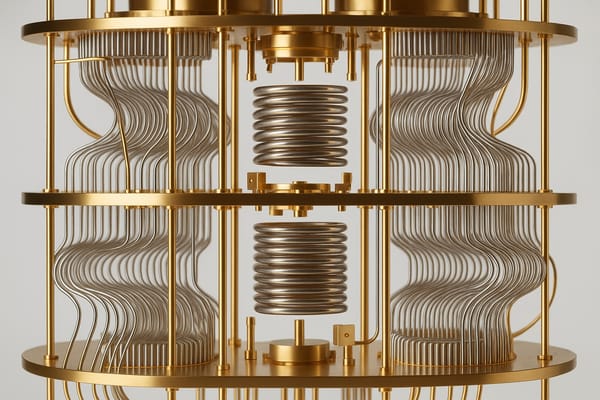Smartwatches can spot hidden signs of depression and predict future moods
Wearable devices could be redeployed to assess your state of mind and forecast mental health challenges.
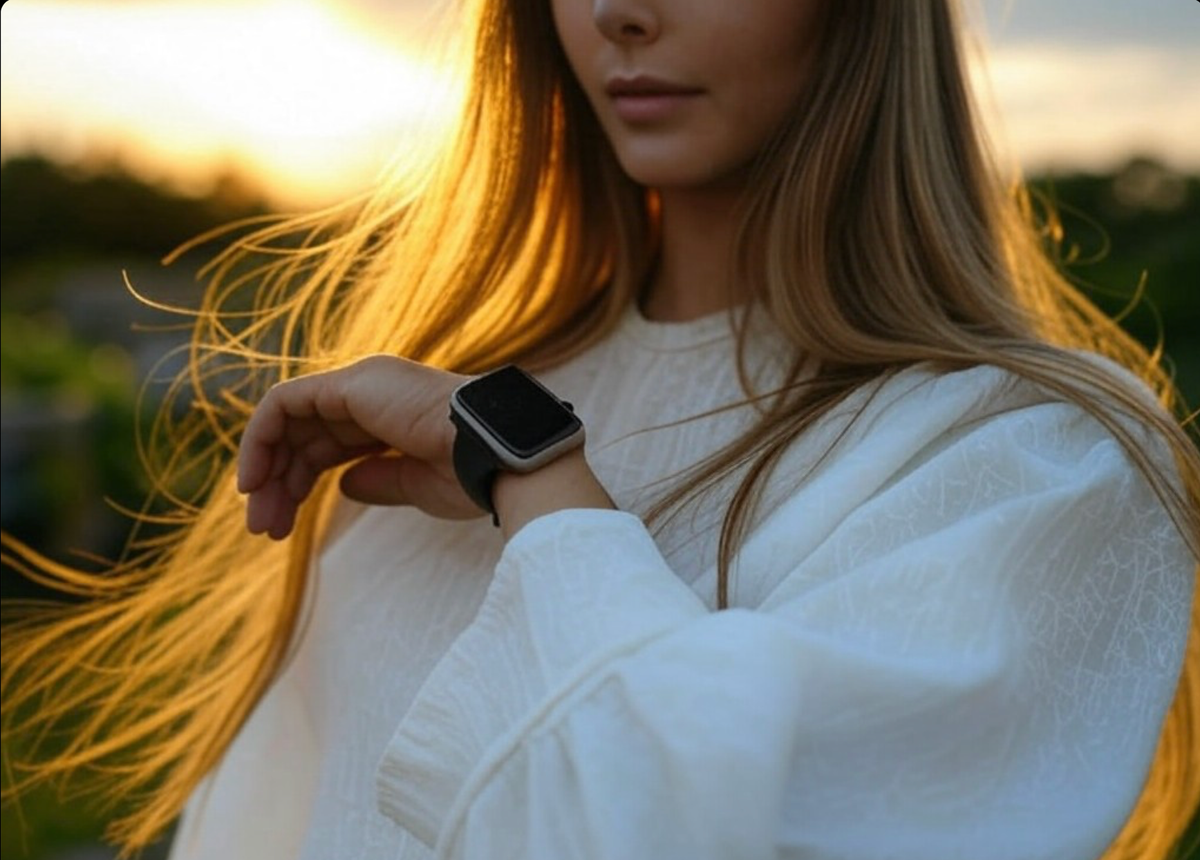
Your smartwatch could soon be able to spot signs of depression and forecast whether more mental health challenges are on the horizon.
An international joint research team from KAIST (the Korea Advanced Institute of Science and Technology) and the University of Michigan have developed a digital biomarker capable of predicting symptoms of depression by analysing data collected by wearable devices.
The scientists said their tech could be used to replace the "economically burdensome" functional magnetic resonance imaging (fMRI) tests, which are non-invasive brain scans that measure brain activity by detecting changes in blood flow.
It is also "expected to expand the scope of digital health data analysis".
The researchers were motivated by the "pandemic of mental illness" which accompanied the spread of Covid-19 - adding to a problem which means that roughly one billion people worldwide suffer from psychiatric conditions.
Korea is "one of the more serious cases", the scientists warned, with approximately 1.8 million patients exhibiting depression or anxiety disorders and the total number of patients with clinical mental diseases increasing by 37% over five years to approximately 4.65 million.
Identifying disruptions to circadian rhythms
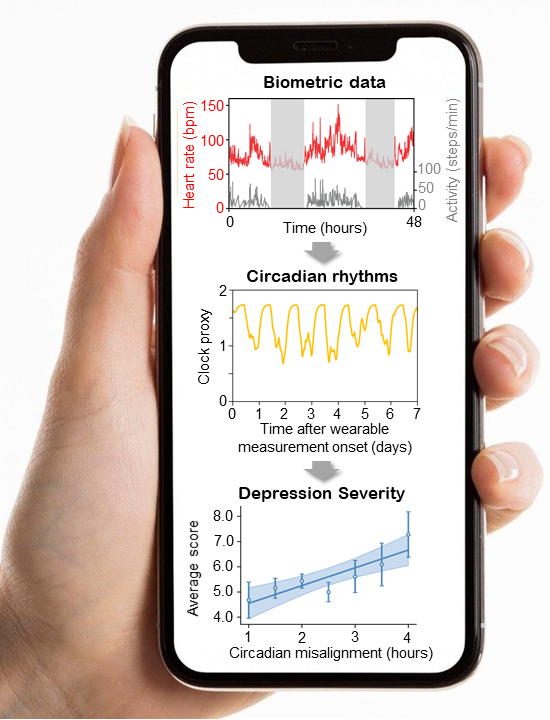
The Korean and American joint research team's technology uses biometric data collected through wearable devices to predict tomorrow's mood and, further, to predict the possibility of developing symptoms of depression.
A promising new treatment for mental illness focuses on the sleep and circadian timekeeping system located in the hypothalamus of the brain, which impacts impulsivity, emotional responses, decision-making, and overall mood.
KAIST's research team under Professor Dae Wook Kim from the Department of Brain and Cognitive Sciences and Professor Daniel B. Forger from the Department of Mathematics at the University of Michigan in the United States said their invention predicts symptoms of depression such as sleep disorders, depression, loss of appetite, overeating, and decreased concentration in shift workers from the activity and heart rate data.
How is the circadian rhythm regulated?
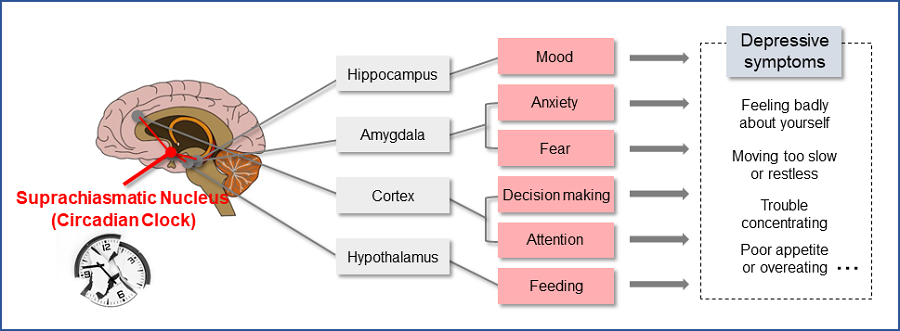
The suprachiasmatic nucleus located in the hypothalamus of the brain is the central biological clock that regulates the 24-hour physiological rhythm and plays a key role in maintaining the body’s circadian rhythm. If the phase of this biological clock is disrupted, it affects various parts of the brain, which can cause psychiatric conditions such as depression.
However, in order to measure sleep states and endogenous circadian rhythms and sleep states, changes in the concentration of the melatonin hormone in our bodies and polysomnography (PSG) must be assessed. This requires blood or saliva to be drawn every 30 minutes throughout the night.
Such a treatment requires hospitalisation. However, most psychiatric patients only visit for outpatient treatment, meaning there has been "no significant progress in developing treatment methods".
Additionally, a PSG test costs roughly $1000, meaning only the rich can access mental health treatment that considers sleep and circadian rhythms.
The solution to these problems is using wearable devices to collect biometric data such as heart rate, body temperature, and activity level in real time. However, current wearable devices have the limitation of providing only indirect information on biomarkers required by medical staff, such as the phase of the circadian clock.
Digital twins battle depression
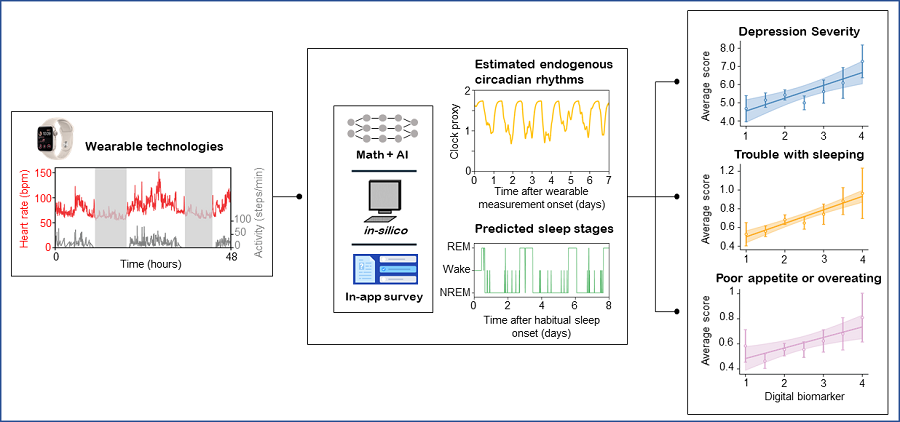
The joint research team developed a filtering technology that accurately estimates the phase of the circadian clock, collecting heart rate and activity time series data from a smartwatch.
They also implemented a digital twin, which allowed them to precisely describe the circadian rhythm in the brain and estimate the scale of disruptions to this cycle.
Based on the biometric data from a a smartwatch, a mathematical algorithm estimated the brain's circadian phase and sleep stages to assess the degree of circadian disruption. These estimates can be used as the digital biomarkers to predict depression risks.
The possibility of using the digital twin of this circadian clock to predict the symptoms of depression was verified through collaboration with the research team of Professor Srijan Sen of the Michigan Neuroscience Institute and Professor Amy Bohnert of the Department of Psychiatry of the University of Michigan.
The team conducted a large-scale study involving approximately 800 shift workers and showed that the circadian rhythm disruption digital biomarker estimated by the technology "can predict tomorrow's mood" as well as six symptoms, including sleep problems, appetite changes, decreased concentration, and suicidal thoughts, which are representative symptoms of depression.
Professor Dae Wook Kim said, "It is very meaningful to be able to conduct research that provides a clue for ways to apply wearable biometric data using mathematics that have not previously been utilized for actual disease management.
"We expect that this research will be able to present continuous and non-invasive mental health monitoring technology. This is expected to present a new paradigm for mental health care. By resolving some of the major problems socially disadvantaged people may face in current treatment practices, they may be able to take more active steps when experiencing symptoms of depression, such as seeking counsel before things get out of hand."
Have you got a story or insights to share? Get in touch and let us know.



